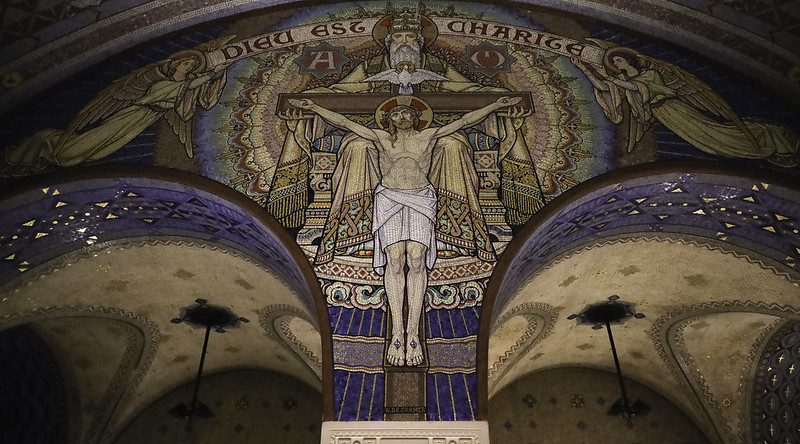The word “love” is cheap. Rather, it has been made cheap by a confused world that struggles to acknowledge the true desire of our hearts. In one moment, people declare love for their spouse or children, and in the very next moment express love for something like food, clothes, and the passing pleasures of this world. When everything seems to be worthy of love, love becomes less valuable.
While many have a confused sense of love, today the Church celebrates a great defender of true love: Saint Francis de Sales. Last December marked the 400th anniversary of his death, the day Pope Francis published an apostolic letter to commemorate the occasion.
Francis de Sales was a vastly influential figure in the history of Christian spirituality. His teaching can be summarized in his own words: “Everything pertains to love” (Treatise on the Love of God). He illustrates how everything in our lives involves love, for God is our everything, the same God who is love itself (1 John 4:7–21). He who numbered the vast sea of stars is also attentive to even the smallest hairs on our heads. What else could move the infinite God to care for such finite creatures except his infinite love? This God who has loved us so much, therefore, claims for himself the whole of our love: “You shall love the Lord your God with all your heart, and with all your soul, and with all your might” (Deut 6:5).
Francis de Sales’s emphasis on the love of God offers an invaluable lesson for a world that fails to understand it. Admittedly, there are some differences between him and the Dominicans concerning some theological topics. We don’t need to go into detail about these differences, but our shared zeal for the salvation of souls should lead us to defend this Doctor of the Church and his teaching on the love of God. After all, the love that Francis de Sales emphasizes is none other than a share in the very life of God, he who is our beginning and end, who moves and orders all things, the desire of our hearts and object of our study, the one whom we proclaim in our preaching.
We can even acknowledge similarities between Francis de Sales and another Doctor of the Church who resonates with the Dominican mind and heart: our brother Saint Thomas Aquinas. Touching upon Aquinas’s teaching on the created order, to say with Francis de Sales that “everything pertains to love” means that everything in our lives is an opportunity to see God’s loving and gentle presence around us and within us. Through a beautiful manifestation of God’s providential care in creation, the life of love enables men and women—created in his image and likeness, and made sharers in the divine nature by grace—to be that same gentle presence of God to the world.
Francis de Sales, like Thomas Aquinas, also has an optimistic view of the human person, encouraging people to live the life God has laid before them out of love for them. Growth in virtue requires a dedication to truth, including the truth of who we are before God and the world. Yet, we can still be transformed in this life by grace. Rather than being reduced to a wretch, the soul is elevated by nothing other than God’s love.
Despite our weakness and sin, God has sent his Son out of love for us. This speaks to the Christ-centered character of the writings of Thomas Aquinas and Francis de Sales. Christ brings us to the Father to share in divine love. He is our model and teacher in the life of sanctity, while also being the very cause of this new life through his death on the cross. As one hymn puts it: “Love to the loveless shown, that they might lovely be” (Samuel Crossman, “My Song is Love Unknown,” 1664). Christ’s love on the cross shows that we are both loveable and are in fact loved. God continues to manifest this truth through the sacraments and the gift that is his Church.
The Dominican soul proclaims, without compromise, that our life and beatitude begin and end with God, and he is at work in everything in-between. Saint Francis de Sales proclaims a similar truth by saying that everything pertains to love. For if God is love, then our life and beatitude begin and end with love, and love is at work in everything in-between.
✠
Photo by Fr. Lawrence Lew, O.P. (used with permission)







